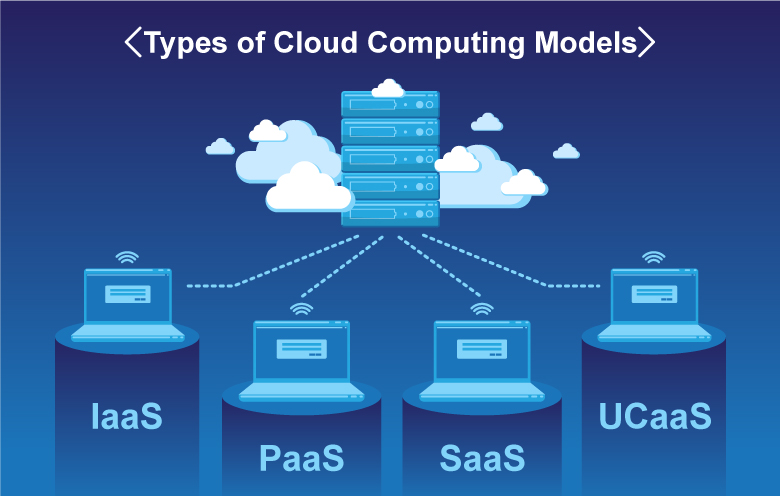Streamline Procedures With Robust Cloud Provider
In today's busy business landscape, the duty of modern technology in improving operational efficiency has actually ended up being extremely important. Accepting robust cloud services presents a critical chance for companies to improve their operations and stay ahead of the contour. By using the power of cloud solutions, services can attain a degree of functional agility that is vital for continual growth and competitiveness in the digital age. The advantages exceed simple benefit; they include an essential change in exactly how services adjust and operate to the ever-evolving market dynamics.
Benefits of Cloud Solutions
Cloud solutions provide various advantages to services and people seeking versatile and effective options for data storage space and management. One key advantage is the scalability that shadow services offer, enabling individuals to conveniently readjust their storage and computing needs as their requirements evolve. This flexibility enables businesses to scale up during peak times and reduce throughout slower periods, maximizing prices and sources.
Additionally, cloud solutions provide enhanced accessibility to data and applications. Users can access their information from anywhere with a net link, promoting cooperation among employee working from another location or in different areas. cloud services press release. This availability also boosts efficiency by enabling smooth work procedures without being linked to a particular physical place
Furthermore, cloud services commonly feature automated updates and maintenance, decreasing the burden on IT departments and making sure that systems are safe and secure and current. This positive method to upkeep helps organizations remain protected and affordable in an ever-evolving technical landscape. Generally, the advantages of cloud services make them an important possession for businesses wanting to enhance operations and enhance performance.

Boosted Data Safety Steps
Executing durable encryption methods and access controls is vital for making certain data protection in cloud solutions. By encrypting data both in transportation and at rest, companies can secure sensitive info from unauthorized gain access to. Access controls aid limit that can view, edit, or erase data, including an added layer of protection. Multi-factor authentication further boosts information security by requiring additional confirmation steps past a password.
Routine safety audits and monitoring are crucial to determining and resolving possible susceptabilities quickly. By continually checking for unusual activities, organizations can respond and find to safety hazards in real-time, reducing the risk of information violations. Information loss avoidance devices can also assist prevent malicious or unintentional information leaks by keeping an eye on and obstructing delicate info from being shared outside the organization.
Training workers on finest safety and security methods is essential in maintaining data safety. cloud services press release. Informing team on exactly how to identify phishing attempts, producing strong passwords, and securely handling data can substantially reduce the possibility of protection events. Generally, a comprehensive approach that combines security, accessibility controls, monitoring, and staff member training is key to boosting information safety in cloud services
Scalability and Versatility Solutions
To fulfill the demands of evolving company requirements, companies are increasingly looking for scalable and flexible remedies within their cloud solutions find more information framework. Scalability and adaptability are vital parts that make it possible for businesses to adapt to transforming needs successfully. Cloud services provide the benefit of easily scaling sources up or down based on need, allowing organizations to enhance performance and cost-effectiveness.
One secret service for scalability is the use of auto-scaling capacities, where cloud resources immediately readjust to meet changing workloads. Furthermore, cloud solutions provide adaptability by offering a wide range of services and implementation options, allowing companies to customize their infrastructure to specific demands.
Cost-Effectiveness and Source Optimization
Accomplishing cost-effectiveness and optimizing sources are paramount factors to consider for companies when handling their cloud solutions framework. Cloud services supply the advantage of cost versatility, allowing businesses to pay only for the sources they make use of, which can result in considerable cost financial savings compared to traditional on-premises remedies. By leveraging cloud services, companies can maximize their source appropriation, scaling up or down based on demand to stay clear of over-provisioning and unnecessary costs. In addition, cloud service providers frequently offer different pricing designs, such as scheduled or pay-as-you-go circumstances, making it possible for companies to select the most cost-efficient alternative based on their usage patterns.
Source optimization in the cloud entails effectively utilizing computing power, storage, and networking capabilities to fulfill performance requirements without overspending on unnecessary sources. Implementing automation tools and checking systems can aid companies track source usage in real-time, determine inefficiencies, and make adjustments to enhance procedures and reduce prices. By continuously optimizing sources and surveillance expenses, organizations can guarantee they are making the most of the cost-effectiveness of their cloud services facilities while keeping high efficiency levels.
Combination Strategies for Seamless Workflow
In order to ensure reliable and smooth procedures, companies need to strategically carry out and prepare integration techniques for their cloud services infrastructure. APIs enable the sharing of information and capabilities between applications, promoting interoperability and streamlining processes.
Furthermore, embracing middleware options can aid connect the read void in between disparate systems by working as an interaction layer that helps with data exchange and synchronization. This middleware layer can boost connectivity and enable real-time information circulation in between applications, databases, and gadgets. Additionally, leveraging integration platforms as a solution (iPaaS) can streamline the integration process by offering pre-built ports and tools for integrating cloud solutions with on-premises systems.
Verdict
Finally, leveraging durable cloud services provides companies countless advantages such as enhanced information safety and security, scalability, cost-effectiveness, and smooth combination approaches. By enhancing effectiveness and efficiency, organizations can adjust sources to satisfy changing needs and drive general success. With streamlined operations and improved functional dexterity, organizations can efficiently browse the ever-changing organization landscape and stay affordable in today's electronic period.
Cloud services provide the advantage of conveniently scaling resources up or down based on need, enabling organizations to maximize performance and cost-effectiveness.
Furthermore, cloud services offer adaptability by supplying a broad range of solutions and release alternatives, enabling services to tailor their infrastructure to particular demands. By constantly maximizing resources and surveillance expenditures, companies can ensure they are optimizing the cost-effectiveness of their cloud solutions framework while keeping high efficiency levels.
In addition, leveraging integration platforms as a service (iPaaS) can streamline the combination procedure by providing pre-built ports and other devices for incorporating cloud solutions with on-premises systems.
